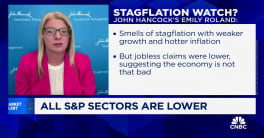Treasury Secretary Timothy F. Geithner told the House Committee on Financial Services today that Congress must tackle reforming Freddie Mac and Fannie Mae or the government sponsored enterprises (Enterprises) will merely return to their old form.
Geithner's prepared testimony before the committee was based on the Obama Administration's White Paper, released two weeks ago, outlining its vision for reforming the housing finance market. In that vision, the Treasury Secretary said the government's primary role will be limited to consumer protection and oversight, targeted assistance for low-and moderate-income homeowners and renters; and a targeted capacity to support market stability and crisis response.
In other words, the Administration is committed to a private market system subject to strong oversight, consumer and investor protections and in which the private market, not American taxpayers, bear the burden for losses.
Geithner criticized the government's long-standing role in housing finance for supporting incentives that distorted the market, created significant moral hazard, and ultimately left taxpayers responsible for the resulting mess. While all Americans should have access to affordable, quality housing, he said, the goal should not be for every American to become a homeowner. Targeted and effective support should be available to families who have the financial capacity to own a home but are underserved by the private market coupled with a range of options for Americans who rent.
He emphasized the important of winding down Fannie and Freddie at a careful and deliberate pace so as to not shock an already fragile housing market and said this can be accomplished by:
- Gradually increasing guarantee pricing at the Enterprises as if they were held to the same capital standards as private institutions;
- Reducing conforming loan limits by allowing the temporary increases enacted in 2008 to expire as scheduled on October 1, 2011
- Gradually increasing the amount of private capital that risks loss ahead of taxpayers through credit loss protections and gradually increased down payment requirements;
- Continued wind-down of Enterprise investment portfolios at a rate of no less than ten percent a year.
As the Enterprises presence is decreased, Geithner said the administration will also scale back FHA "to its more traditionally targeted role." The maximum loan size should be reduced, and once it returns to pre-2008 levels, we should review whether further decreases are warranted. The pricing of FHA mortgage insurance should also increase beyond the two rounds of increases already enacted, both to strengthen the capital reserve account and to align its pricing structure in a more appropriate relationship with the private sector.
The Administration also supports reforms at the Federal Home Loan Banks (FHLBs) by instituting single district membership, capping the level of advances for any institution, and reducing the FHLB's investment portfolios.
Government reform of government, Geithner said, is only half of the picture. "We must also pursue reforms that restore confidence in the mortgage market among borrowers, lenders, and investors." The Dodd-Frank Act laid the groundwork for many of these reforms and Treasury is coordinating changes to the securitization market that will require originators and securitizers to retain risk while the Consumer Financial Protection Bureau will soon assume authority to curb abusive practices and promote choice for consumers. Also underway are changes to bank capital standards and reforms to the servicing industry. The latter includes designing national servicing standards and identifying ways to reduce conflicts of interest between holders of first and second mortgages and improving incentives for servicers to work with troubled borrowers.
Geithner said the Administration has laid out three potential options to structure government support in a housing finance market where the private sector is the predominant provider of credit and bearer of mortgage risk. In each, government support would be "transparent, explicit, and limited," and each would preserve FHA assistance and similar government initiatives that assist targeted groups such as low- and moderate-income families, farmers, and veterans.
The first option would limit government's role almost exclusively to those targeted assistance initiatives. The vast majority of mortgages would be financed by the private sector and would not benefit from a government guarantee.
The second option would complement targeted assistance though FHA and other initiatives with a government backstop designed to promote stability and access to mortgage credit in times of market stress.
The third option would have the government, in addition to the FHA and targeted assistance initiatives, provide reinsurance for certain securities that would be backed by high-quality mortgages. These securities would be guaranteed by closely regulated private companies under stringent capital standards and strict oversight and reinsured by the government which would charge a premium to cover future claims and would only pay those claims after private guarantors are wiped out.
Geithner said in his prepared remarks that he hopes comprehensive housing finance reform legislation will pass a Congressional vote in the next two years. He added, "Failing to act would exacerbate market uncertainty and risk leaving many of the flaws in the market that brought us to this point in the first place unaddressed.”
Following his testimony, committee members questioned Geithner about the costs involved in these options. The Secretary said that costs to the consumer will be higher under any of the reforms but that under the first reform they would be higher than under the second or third. Each of the longer-term reforms outlined will require action by Congress, the Secretary said, but by providing a narrow set of options and key criteria by which they should be judged, the Administration hopes to encourage an honest conversation about the merits and drawbacks of each.
Below you find a quick recap of Geithner's responses to the Congressional questions that followed his prepared testimony...
RTRS-U.S. TREASURY'S GEITHNER SAYS 90 PCT ROLE FOR GOVT BACKED MORTGAGES NECESSARY NOW, BUT NOT IN THE FUTURE
RTRS-U.S. TREASURY'S GEITHNER SAYS HOUSING DOWNTURN WOULD HAVE BEEN MUCH MORE SEVERE WITHOUT THE SUPPORT OF FANNIE, FREDDIE
RTRS-U.S. TREASURY'S GEITHNER SAYS LEAVING FHA AS ONLY BACKER OF MORTGAGES MAY NOT ACTUALLY REDUCE TOTAL GOVT ROLE IN HOUSING MARKET
RTRS-GEITHNER-CONGRESS CAN MIX OPTIONS PROPOSED BY TREASURY FOR FANNIE, FREDDIE REFORM
RTRS-GEITHNER-SAYS NO GUARANTEES THAT PRIVATE SECTOR WILL STEP BACK INTO MORTGAGE MARKET
RTRS-GEITHNER-IN ALL REFORM OPTIONS, FHA MUST HAVE THE ABILITY TO PROVIDE MORTGAGES TO LOW/MODERATE INCOME FAMILIES WITH MODEST DOWNPAYMENT
RTRS-GEITHNER SAYS TERMINATING MORTGAGE MODIFICATION PROGRAM WOULD CAUSE A LOT OF DAMAGE TO FRAGILE HOUSING MARKET
RTRS-U.S. TREASURY'S GEITHNER SAYS FANNIE FREDDIE OPTION WITH EXPLICIT GUARANTEE HAS "A LOT OF MERIT"
RTRS-GEITHNER-HARD TO KNOW IF U.S. HOUSING MARKET HAS BOTTOMED OUT
RTRS-GEITHNER-HOUSING MARKET STILL HAS A LOT OF DAMAGE TO ABSORB; NEEDS TIME TO RECOVER
RTRS-GEITHNER SAYS WOULD NOT LOOK TO EUROPEAN SYSTEM OF HOUSING FINANCE AS APPEALING ROLE MODEL FOR U.S.







